
Sir John Chudleigh (1606 - April 1634) was an English politician who sat in the House of Commons in 1626.

Sir John Chudleigh (1606 - April 1634) was an English politician who sat in the House of Commons in 1626.
Chudleigh was the eldest son of Sir George Chudleigh, 1st Baronet (d.1656) of Ashton, Devon, (whom he predeceased), and his wife Mary Strode, eldest daughter of Sir William Strode (died 1637), MP, of Newnham, Plympton St Mary, Devon.
He matriculated at Wadham College, Oxford on 1 June 1621 aged 15 and was awarded BA in 1624 and MA in 1626. [2] He was knighted at Plymouth as a captain on 28 September 1625. [3] In 1626 he was elected Member of Parliament for East Looe. [4] He was incorporated at Cambridge University in 1629. [4] [5]
Chudleigh died at the age of about 28, in his father's lifetime, [4] and his brother George succeeded to the baronetcy. [6]
Sir Robert Killigrew (1580–1633) was an English courtier and politician who sat in the House of Commons at various times between 1601 and 1629. He served as Ambassador to the United Provinces.
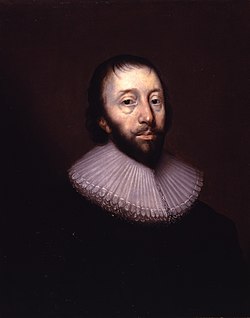
Sir Dudley Digges was an English diplomat and politician who sat in the House of Commons between 1610 and 1629. He was also a "Virginia adventurer," an investor who ventured his capital in the Virginia Company of London. His son Edward Digges would go on to be Governor of Virginia.
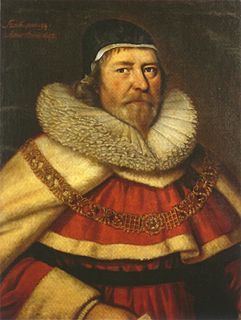
Sir John Bankes was an English lawyer and politician who sat in the House of Commons between 1624 and 1629. He was Attorney General and Chief Justice to Charles I during the English Civil War. Corfe Castle, his family seat was destroyed during a long siege, in which his wife Mary Hawtrey became known as Brave Dame Mary.

Sir John Northcote, 1st Baronet was an English politician who sat in the House of Commons at various times between 1640 and 1676. He supported the Parliamentarian cause in the English Civil War.
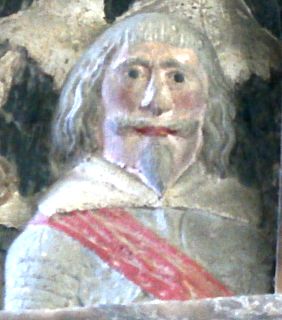
Sir Richard Strode of Newnham, Plympton St Mary, Devon and of Chalmington in Dorset, was a member of the Devonshire gentry who served as MP for Bere Alston in 1604, Bridport in 1626 and for Plympton Erle in 1640. He was by religion a puritan and towards the end of his life a baptist. During the Civil War he was a parliamentarian and raised a force of 3,000 dragoons.
Charles Berkeley, 2nd Viscount Fitzhardinge was an English politician who sat in the House of Commons at various times between 1621 and 1668. He supported the Royalist cause in the English Civil War. He succeeded by special remainder to the peerage of his son who predeceased him.
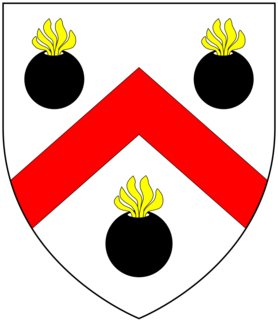
Sir Peter Ball was an English lawyer and politician who sat in the House of Commons between 1626 and 1640. He was attorney general to Queen Henrietta Maria.
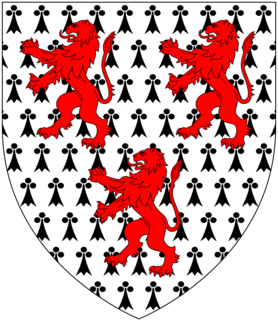
The Chudleigh Baronetcy, of Ashton in the County of Devon, was a title in the Baronetage of England. It was created on 1 August 1622 for George Chudleigh (d.1656), Member of Parliament for St Michael's, East Looe, Lostwithiel and Tiverton. The title became extinct on the death of the sixth Baronet in 1745.
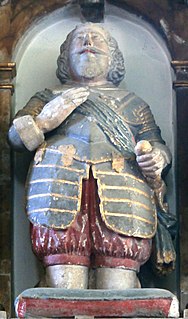
Sir William Strode (1562–1637) of Newnham in the parish of Plympton St Mary, Devon, England, was a member of the Devon landed gentry, a military engineer and seven times a Member of Parliament elected for Devon in 1597 and 1624, for Plympton Erle in 1601, 1604, 1621 and 1625, and for Plymouth in 1614. He was High Sheriff of Devon from 1593 to 1594 and was knighted in 1598. In 1599 he was appointed Deputy Lieutenant of Devon. There is a monument to him in the parish church of Plympton St Mary.

Sir George Chudleigh, 1st Baronet, of Ashton, Devon, was an English landowner and politician, who sat in the House of Commons at various times between 1601 and 1625. He had close family connections to a group of Devon Presbyterians, including Sir William Strode.

John Bampfield of Poltimore and North Molton, Devon, England, was a Member of Parliament for Tiverton in Devon (1621) and for the prestigious county seat of Devon (1628-9).

John Drake was an English politician who sat in the House of Commons at various times between 1614 and 1626.
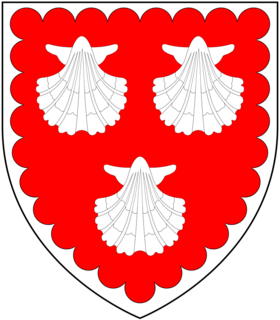
Christopher Erle was an English lawyer and politician who sat in the House of Commons at various times between 1621 and 1629.

Sir John III Chichester of Hall was Member of Parliament for Lostwithiel in Cornwall in 1624.

Sir John Davie, 2nd Baronet (1612–1678) of Creedy in the parish of Sandford, Devon, was Member of Parliament for Tavistock, Devon, in 1661 and was Sheriff of Devon from 1670 to 1671.
Sir Francis Fulford was an English politician who sat in the House of Commons in 1625.

Sir Thomas Reynell was an English politician who sat in the House of Commons from 1624 to 1629.
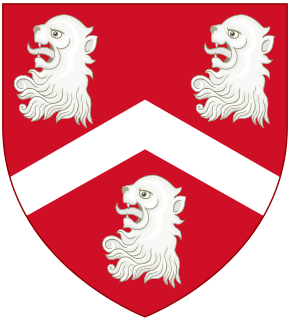
Sir Thomas Monck of Potheridge in the parish of Merton, Devon, was Member of Parliament for Camelford, Cornwall, in 1626. He was the father of George Monck, 1st Duke of Albemarle (1608–70), KG and of Nicholas Monck, Bishop of Hereford.

Thomas Leigh, 1st Baron Leigh was an English politician who sat in the House of Commons from 1628 to 1629. He supported the Royalist cause in the English Civil War and was created a baron in 1643.

Reginald Mohun of Trewynard in Cornwall, was a Member of Parliament for Lostwithiel, Cornwall, in 1626.
| Parliament of England | ||
|---|---|---|
| Preceded by James Bagge John Trevor | Member of Parliament for East Looe 1626 With: James Bagge | Succeeded by William Murray Paul Speccot |